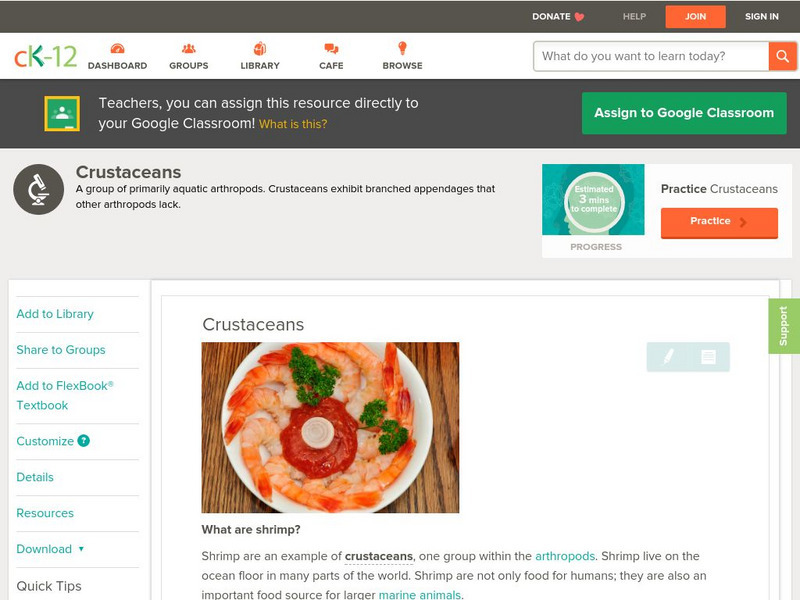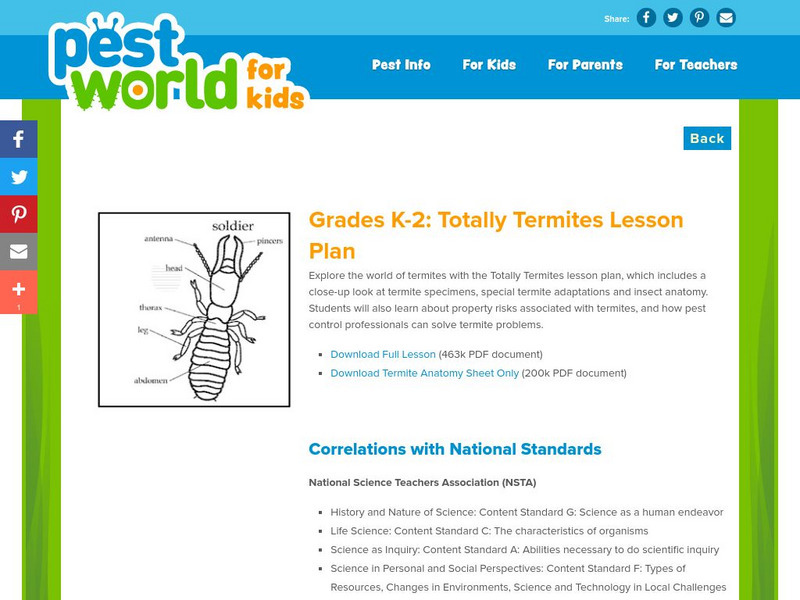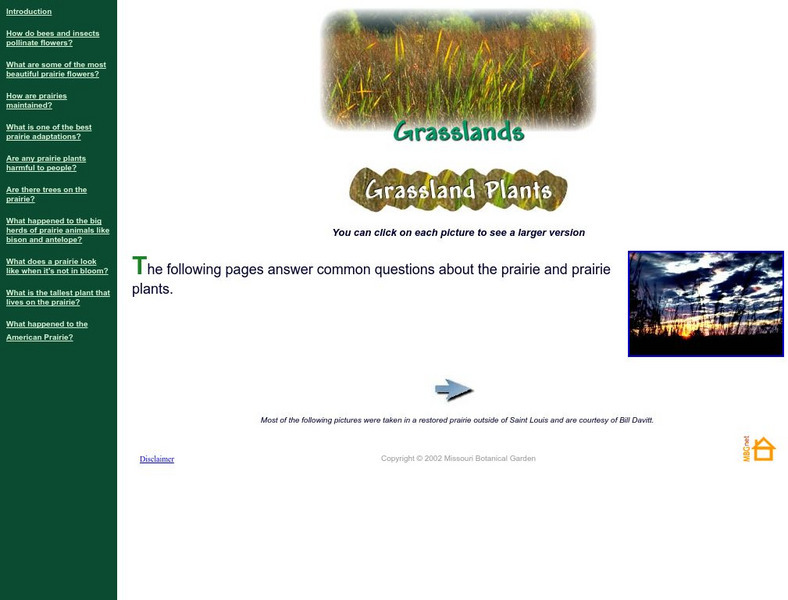Other
Western North Carolina Vitality Index: Ecosystem Threats
The forests of Western North Carolina are threatened by a wide variety of environmental stressors and disturbances, such as insects, disease, invasive species, drought, fire, hurricanes, tornadoes, and ice storms. A stressor is any kind...
CK-12 Foundation
Ck 12: Life Science: Crustaceans
[Free Registration/Login may be required to access all resource tools.] Crustaceans are a large group of arthropods, consisting of almost 52,000 species. The majority of crustaceans are aquatic. A few groups have adapted to living on...
National Pest Managment Association
Pest World for Kids: Totally Termites
Explore the world of termites with this lesson, which includes a close-up look at termite specimens, special termite adaptations and insect anatomy. Students will also learn about property risks associated with termites, and how pest...
TED Talks
Ted: Ted Ed: How Life Came to Land
This video explores arthropods, who first made the transition from water to land and who outnumber all terrestrial animals. [5:28] Followed by a short quiz and a list of additional resources to explore.
Missouri Botanical Garden
Missouri Botanical Garden: Grassland Plants
This site from the Missouri Botanical Garden explores some commonly asked questions about the prairie and prairie plants.
CK-12 Foundation
Ck 12: Third Grade Science
This customizable digital textbook covers topics related to third-grade science. It is Next Generation Science Standards (NGSS) aligned.
PBS
Pbs: Nova: A Plant With Smarts
Not only are orchids tricky when it comes to being pollinated, they also have some tricks that help them survive in a competitive environment. Discover how orchids outwit insects to reproduce and how they have adapted to survive in their...
Smithsonian Institution
National Museum of Natural History: American Mammals: Western Harvest Mouse
Western Harvest Mice are adaptable, widespread, and abundant, especially in meadows, prairies, old pastures, stream valleys, and marshes. They eat seeds, insects, and plants. Learn more about the Reithrodontomys megalotis, more commonly...
Smithsonian Institution
National Museum of Natural History: American Mammals: Mexican Ground Squirrel
Mexican Ground Squirrels have adapted well to human activity and are common inhabitants of roadsides, cemeteries, and golf courses. They are omnivores, feeding on the seeds of a variety of grasses and forbs, green plant material, and...
Other
Unusual Pollination: Bee Orchid
Some flowers have developed adaptations that lure insects to them for pollination. Visit this website to learn about the very unusual adaptations of the bee orchid.








